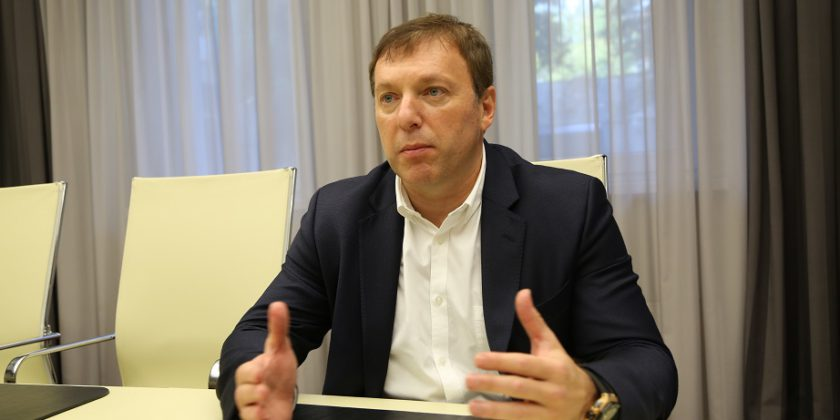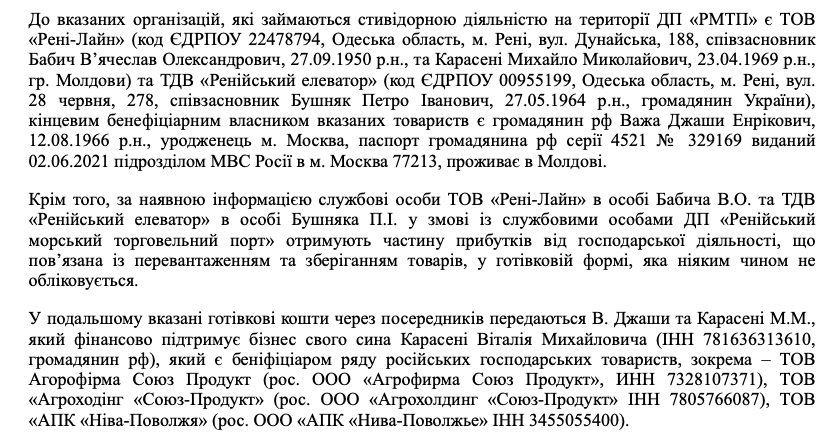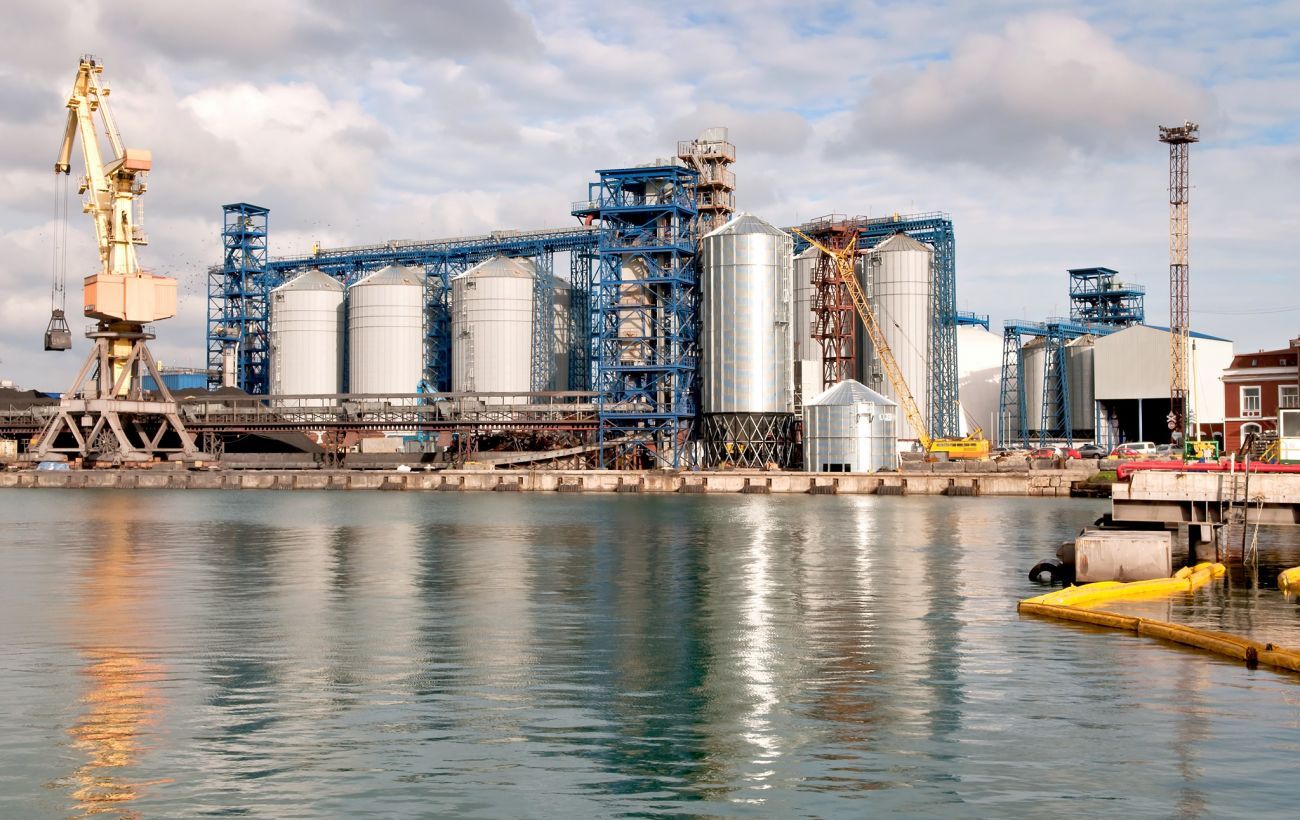В нашу редакцию попали материалы, которые по результатам тщательного анализа, составляют историю, которую невозможно представить, и которая при этом активно разворачивается прямо сейчас в Одессе.
При содействии ранее судимого и хорошо известного в Одессе персонажа Александра Подобедова и его «ручных титушек» состоялась попытка силового захвата ключевого логистического узла зернового экспорта Украины — терминала «Олимпикс».
Мало того, эта попытка еще и отбрасывает зловещую тень российского вмешательства. По нашим сведениям, в эпицентре противостояния вокруг контроля над крупнейшим зерновым терминалом «Олимпэкс» оказался замешан гражданин Российской Федерации — Важа Джаши и его компания Trans-Oil Group. Именно Важа дирижировал действиями Подобедова, и именно его компания должна была установить контроль над терминалом «Олимпекс».
Мы получили в распоряжение документы явно указывающие, что Джаши является владельцем российского паспорта серии 45216 № 32916, выданного в июне 2021 года подразделением МВД России по Москве. Этот факт наводит на плохие мысли о потенциальных целях такого зарубежного привлечения и рисках для бесперебойного функционирования критически важного порта в условиях военного времени.

По данным инсайдеров, Джаши был первоначально привлечен американскими инвесторами — фондами Argentem Creek Partners и Innovatus Capital Partners — в их борьбе за установление контроля над «Олимпиксом».
Но история перешла в такую фазу, где Важа Джаши взял активное управление над процессом захвата терминала «Олимпэкс» в свои руки, американским фондам транслирует свое собственное видение процесса, и заводит своими действиями ситуацию в еще больший тупик.
Почему именно выбрали Важу Джаши и почему он уверен в том, что удастся как «запутать» своих американских нанимателей и провернуть все запланированные «схемы»?
Атака на одесский порт — не первая в «украинской карьере» Джаши.
Почему «украинской»? Дело в том, что Важа Джаши ранее способствовал пророссийскому политическому крылу в Молдове, и строил свои схемы там.
По данным следствия, которые мы получили из собственных источников, ряд коммерческих структур, располагающихся на территории Ренийского морского торгового порта, оказались втянутыми в сомнительные финансовые схемы.
В центре скандала — ЧАО «Ренийский элеватор» и его «теневой бенефициар», гражданин РФ Важа Джаши.
По версии правоохранителей, это предприятие вместе с другими портовыми операторами выводило часть доходов в неучтенной «черной» кассе. Значительные суммы наличных денег передавались самому Джаши и его российским деловым партнерам.
Во время недавнего обыска на территории «Ренийского элеватора» были изъяты десятки тысяч долларов, евро и гривен, а также документация, указывающая на возможные нарушения. По мнению следствия, эта наличность могла быть предназначена для финансирования противоправной деятельности, подрывающей конституционный строй Украины.
Об этом свидетельствуют квалификации преступлений в возбужденном уголовном деле — финансирование действий против конституционного строя, подделка документов и легализация доходов, полученных преступным путем. Суд уже наложил арест на изъятое имущество для сохранения вещественных доказательств.
Следствие продолжает выяснять удивительные подробности «ренийской» финансовой кухни и круг лиц, причастных к возможному выводу капиталов в пользу российских бенефициаров, имеющих деловые интересы в украинском порту.

В дополнение к своему паспорту и происхождению, Важа Джаши имеет крайне темное прошлое, ЧАО «Ренийский элеватор» и схемы связанные с ним — лишь верхушка айсберга. Не первый «схемный проект» в карьере Джаши.
К тому же на территории терминала «Олимпикс» по состоянию на сейчас, по ранее заключенным контрактам, находится большое количество зерновых культур, владельцами которой является целый перечень третьих лиц. Задачей Важи Джаши является не только установление контроля на терминалом, но и незаконное завладение этим товаром с целью его дальнейшей переправки на подконтрольный ему «Ренийский элеватор».
Эти действия уже привели к началу ряда уголовных производств по незаконному присвоению имущества третьих лиц и рейдерскому захвату действующего предприятия.
Этот взрывоопасный конфликт лишь подчеркивает хрупкость ситуации вокруг одесского порта — ключевого звена в цепочке экспорта украинского зерна. Любая дестабилизация в этой сфере грозит катастрофическими последствиями не только для Украины, но и мировой продовольственной безопасности.
Вместе с этим, давайте сделаем два шага назад и посмотрим, что именно стало предпосылкой событий, которые разворачиваются в Одессе.

АКТ I — Исторический экскурс
«Олимпекс Купе Интернейшнл» (OLIMPEX COUPE INTERNATIONAL) оперирует стратегически важным зерновым терминалом в Одесском порту, одном из трех на юге Украины, активном в рамках «зернового коридора» и входит в GNT Olimpex Holding (GNT Group), конечными бенефициарными владельцами которой являются бизнесмены Сергей Гроза и Владимир Науменко.

Этот терминал имеет стратегическое значение для глобальной продовольственной безопасности, поскольку зерно, которое покидает порт Одессы, стало критическим аспектом в переговорах между Украиной, Россией и мировыми лидерами для предотвращения мирового продовольственного кризиса.
АКТ II — Кредит
GNT Group в 2019 году взял кредиты у двух американских инвестиционных фондов — Argentem Creek Partners (ACP) на сумму 75 млн долларов и Innovatus Capital Partners на 20 млн долларов. При этом в залог были переданы корпоративные права на компанию-оператора терминала, стоимость которых в 2.4 раз превышала сумму кредитов и составляла $176,6 млн.
Конечной датой погашения обязательств был определен декабрь 2021 года, а затем продлен до марта 2022 года, что было вполне понятными и приемлемыми условиями для этого стратегического украинского бизнеса.
История внесла свои коррективы.
Первая фаза: конец 2019 года — начало 2020 года — пандемия COVID-19, которая вызвала массовый мировой кризис и истерию. Заболеваемость, смертность, закрытие границ, массовые увольнения, локдауны, нарушение всех логистических связей и как следствие финансовый кризис и сокращение доходов стали первым ударом для многих бизнесов по всему миру, к слову — в том числе и американских. Логично предположить, что этот кризис в значительной степени повлиял и на GNT Group и их возможность выплачивать по своим обязательствам.
Повлиял, но не остановил деятельность, и тем более не остановил GNT Group в своих намерениях рассчитаться по всем долгам.
Вторая фаза: начало 2022 года — полномасштабное вторжение РФ на территорию Украины. Паника. Хаос. Непонимание что делать дальше. Больше всего активные военные действия в начале полномасштабного вторжения и дестабилизация ситуации в стране повлияли на возможность адекватного оперирования «Олимпэкс Купе Интернейшнл» зерновым терминалом на территории порта. Ограничения военного положения и комендантский час, в частности, оказали свое негативное влияние в бесперебойность процесса перевалки и отгрузки культур на территории терминала.
Совокупно эти события внесли свой «вклад» как в финансовую стабильность GNT Group, так и в адекватную деятельность самого предприятия в целом. Сложный период, в который преобладающее количество украинских бизнесов требовало особых условий и принятия сложившейся ситуации.
Именно в этот период, американские «партнеры» и кредиторы GNT Group не только не вошли в ситуацию и не согласились на адекватные бизнес переговоры, но и решили воспользоваться ею с целью тотального рейдерского захвата активов компании.
Это при тех фактах, что компания является активным бизнесом, с более 25 летней историей, в котором активно работает более 700 человек и который до полномасштабного вторжения не имел никаких проблем, в том числе юридических.
АКТ III — Война
GNT Group неоднократно декларировала свою готовность погасить свои обязательства перед кредиторами и сообщала им об этом.
Владимир Науменко, как конечный бенефициар GNT Group обращался к кредиторам и инициировал реструктуризацию задолженности, к этому процессу присоединился ряд третьих лиц с предложениями провести переговоры по купле-продаже прав требований по возникшим кредитным обязательствам. При поддержке этих третьих лиц GNT Group всегда коммуницировала активную позицию к открытости к публичному диалогу для решения сложившейся ситуации.
Формальной причиной для тотальной юридической атаки на GNT Group и активы группы стали заявления инвестиционных фондов о глобальной готовности к переговорам по реструктуризации, но о принципиальной невозможности этого процесса из-за, якобы, сокрытия операционной деятельности и искажения фактов о пропавшем зерне, которое было предметом залога по кредитным обязательствам.
В дополнение, почти одновременно Argentem Creek Partners и Innovatus Capital Partners выпустили заявления, в которых обвинили бенефициаров группы бизнесмены Сергей Гроза и Владимир Науменко мошенниками.
По мнению нашей редакции очень тяжело складывается позиция о «готовности к переговорам по реструктуризации», которую «приправили» тезисами о том, что бенефициары бизнеса с которым они якобы готовы вести переговоры — мошенники и махинаторы.
Фиксируем. Стратегический украинский зерновой бизнес, который оправляется от полномасштабного вторжения соседнего государства-агрессора, параллельно прилагает максимум усилий для работы в рамках «зернового коридора» (который постоянно подпадает под вражеские обстрелы, которые давят дополнительным грузом ответственности и добавляют проблем непростому процессу ведения бизнеса во время войны), заявляет своим, стратегическим американским «партнерам» о готовности реструктуризировать задолженность, проводит переговоры с третьими лицами для разрешения сложившейся ситуации, в частности, предлагает провести совместные переговоры и объединить усилия для поиска покупателя на активы и публично декларирует о готовности выплачивать кредиторам часть ежемесячной прибыли предприятий.
АКТ IV — Рейдеры
Вместо поиска компромисса, американцы долго искали, кто возьмет на себя процесс по рейдерскому захвату терминала. Это взялся делать Важа Джаши, о котором мы рассказали в начале этой статьи. Формальным поводом для силового входа на территорию предприятия стала замена директора на арбитражного управляющего в рамках судебного процесса о банкротстве. До этого тоже было сделано большое количество юридических, но абсолютно ничтожных действий.
При чем против GNT Group развернули судебные процессы сразу в пяти странах — Украине, Великобритании, Кипре, Швейцарии и ОАЭ это не случайность, а заранее спланированная «акция».
На основании юридически слабых протоколов перенесли адрес регистрации предприятия во Львов, открыли процедуры банкротства. Возвращаясь к формальному поводу для силового захвата — смены директора на арбитражного управляющего. Важно понимать, что определение суда о такой замене сейчас оспаривается в установленном порядке, а согласно данным ЕГРПОУ, директором предприятия остается Марченко Виталий.
Такие агрессивные действия демонстрируют полное отсутствие желания найти компромисс. Вместо этого видим публичную позицию «корпоративных рейдеров».
Акт V — Выводы
В свете всех описанных событий и обстоятельств, над которыми мы провели анализ, становится очевидным, что у кредиторов другие мотивы, чем простой возврат средств.
Действия Argentem Creek Partners и Innovatus Capital Partners указывают на то, что им не столько интересно погашение долга, сколько контроль над Одесским терминалом и другими стратегически важными активами.
Но самое опасное в этом то, что процесс разрешения ситуации доверили гражданину РФ Важи Джаши. Именно он ставит это «кино», в котором американцы к их большому сожалению имеют не роль зрителя и заказчика, а уже сами стали жертвой хитрых схем Джаши.
Вместе с этим по информации, которая стала доступна нашей редакции, GNT Olimpex Holding (GNT Group), конечными бенефициарными владельцами которой являются бизнесмены Сергей Гроза и Владимир Науменко до сих пор готовы перегореть, и публично это декларируют.
Зато пока па данном этапе Важа Джаши только и может, что декларировать американцам, что он возьмет под контроль предприятие. На самом деле ситуация разворачивается таким образом, что GNT Group и Олимпэкс успешно, шаг за шагом, отстаивают свои позиции в судах. У Важи остается очень мало рычагов влияния и возможностей. Глядя на ситуацию, кажется, что он не только ввел в заблуждение американцев, но и сам успешно потерялся посреди своих «схем».


